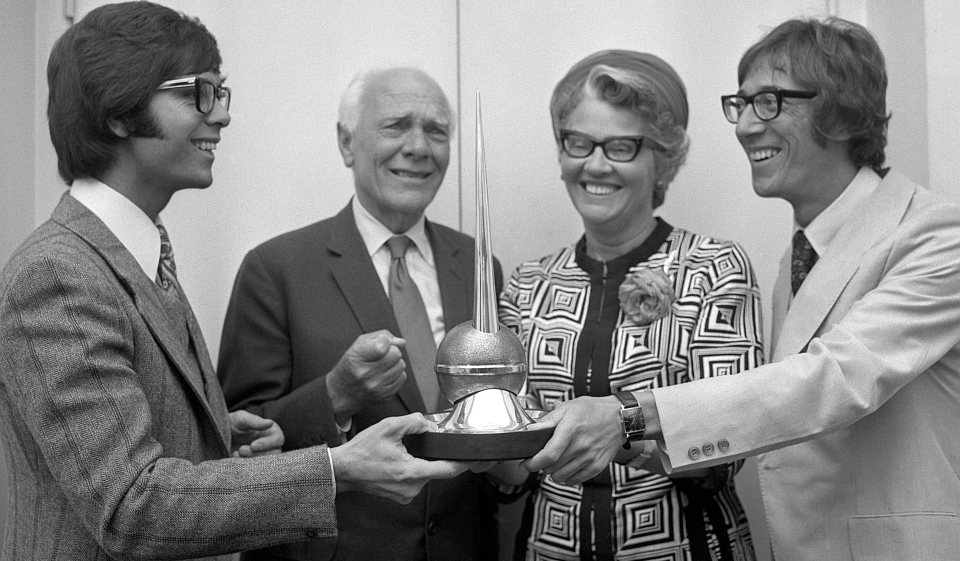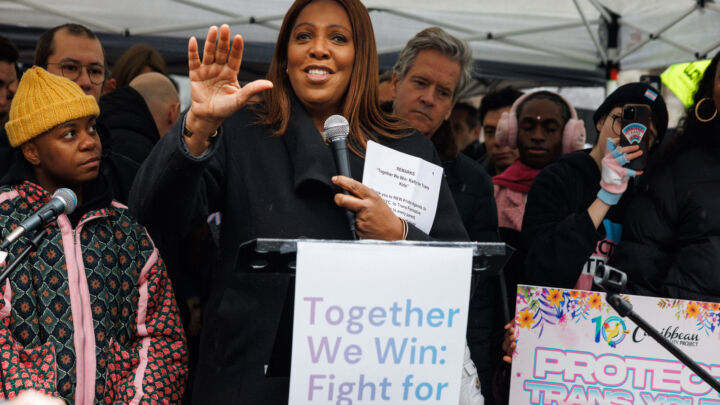The year of the cultural colonialist
In 2014, forcing artists to be politically obedient was all the rage.

Want unlimited, ad-free access? Become a spiked supporter.
Videogames are too violent! Pop music is degrading to women! Filmmakers are pushing ‘the wrong kind of message’! Over the past 12 months these have been the rallying cries of the cultural elite. And it’s shocking how seriously this spew has been taken. Hadn’t we settled all this? People aren’t stupid. Art isn’t ‘corrupting’. We can handle it, thanks. But now it seems the cultural sphere has been flux-capacitored back to the 1980s. Sex-and-violence panics about film, TV, pop music and videogames – dolled up in modern ‘progressive’ moralism – were all the rage in 2014.
We saw this when Gone Girl, a star-studded crime-thriller movie, was spat on by the great and good for having the temerity to feature a female character who framed another character for rape. This pulpy (and actually pretty decent) thriller was ‘recycling…rape myths’, said one commentator. More recently, it was the turn of that master of corridor dialogue, Aaron Sorkin. Sorkin’s TV show, The Newsroom, was pilloried for featuring a scene in which one character admitted that he believed the male defendant in a rape case. This, too, was slammed as a step too far – ‘the Hollywood screenwriter appears to be telling victims not to pursue their allegations’, claimed one writer, in something of an Olympian logical jump. And, at the greasier end of the cultural spectrum, there was #GamerGate, a still-rumbling gamer rebellion against accusations that the games industry is misogynistic, sparked by some blogposts about foul play in games journalism.
There’s nothing more annoying than having the same argument over and over again. Just when you thought artistic freedom had won out over the kneejerk blue-rinse brigade, we’ve been plunged back into discussions about age classifications for pop music and tighter classification of films.
If the Parents’ Music Resource Center (PMRC), the 1980s think-of-the-children outfit for whom we have to thank for ‘Parental Advisory’ stickers, was about today it would be a trendy, feminist-hued political organisation chaired by Jessica Valenti. The patronising and angst-ridden logic of old conservatives has become mainstream, leftish and ‘radical’.
But there is something about 2014’s cultural moralists that sets them apart. Because while the Mary Whitehouses of the past shouted ‘ban this filth’, the Mary Whitehouses of today want to take culture and shape it for their own purposes. They don’t bother with outright censorship – that’s still, just about, a dirty word. They want to straighten culture’s act up. They want to nag it and finger-wag it into a nice, socially acceptable form. They want to stake their flag in the savage world of culture and give the natives a lesson in piety. This was not the year of the cultural censor. This was the year of the cultural colonialist.
This trend was best summed up by Brianna Wu, a games developer and one of the leading anti-#GamerGate missionaries. When asked by the BBC what ‘something’ she was insisting must be done, she said: ‘It’s not like I’m advocating that we ban Call of Duty or anything silly like that. [What] I’m asking is for companies to… make sure they portray women in their games in a socially responsible way.’ It’s a seemingly well-meaning but actually quite chilling sentiment. And it feeds into an unedifying process by which artists are being elevated and trashed purely on the basis of how ‘responsible’ their work is.
This year’s turning on Eminem, the loveable psychopath of the rap world, has been a case in point. Once cherished by left-leaning commentators for his shock-tactic irreverence, rapping about killing his wife and stashing her body in the trunk and, in the process, sticking a much-needed two fingers up at buttoned-up ‘white America’, he’s now become a pariah. Recent battle raps, in which he’s talked about punching purry popster Lana Del Rey in the face and forcing himself on Australian rapper Iggy Azalea, have been slammed as misogynistic and dangerous. The license he was once given to say the unsayable and dramatise the darkest, most disturbing sides of his psyche has been revoked.
Then there’s the lame celebration of Beyoncé. After years of dodging the tag ‘feminist’, she recently grabbed it with both hands, sampling an excerpt from a TED talk given by Nigerian feminist Chimamanda Ngozi Adichie on a new track and performing the song at the VMAs with the word ‘FEMINIST’ lit up behind her. After years of brow-furrowing about whether Bey’s ‘jelly’ was helping or hindering the feminist cause, feminist observers now lionised her. Well, for a bit, at least…
This new trend stems from a wider culture of philistinism. The logic of arts funding applications seems to have permeated cultural life. Art is no longer judged on its own terms. Instead it is an artist’s social responsibility, the pertinence of their work to the political and cultural concerns of the day, that matters. It’s what the novelist Howard Jacobson warned of in 2005, when, in the wake of 9/11, he was perturbed by the shallow art that was celebrated for, in some way, ‘dealing with’ the ‘war on terror’. ‘We are in a new dark age of the imagination’, he wrote. ‘Either we refuse the idea of art altogether… or we confer integrity on it from outside, allowing it to be art only by virtue of the pre-determined importance of the subject matter, or the acceptability of its attitudes. This is a species of censorship to which we have all acceded.’
In 2014, the philistinism Jacobson warned of has gone a step further. Not only is socially irresponsible work ‘bad’ – apparently it’s dangerous. Fuelled by a growing contempt for the audience – a refusal to believe in their ability to grapple with nuanced, subversive or even exploitative subject matter – these cultural colonialists have decided to weaponise culture. If all people are blank slates, if we are so easily programmed by the ‘messages’ we receive, then someone should at least make sure we are getting the right kind of messages, or so the logic goes.
While the cultural colonialists may insist that what they are calling for is simply better art – for art that is free from tired, easy stereotypes and sexist myths – the opposite is true. Art needs freedom to flourish. It’s a space in which mindless fantasies can be indulged, or moral ambiguities prodded and explored, sometimes for no clear reason. Art, as Oscar Wilde famously said, is ‘quite useless’. The moment you try to make it useful, to hector it, straitjacket it and put it to work, its potency withers.
This is something great artists have always recognised. For the 1979 edition of his dystopian, anti-censorship classic, Fahrenheit 451, the late, great Ray Bradbury offered an instructive anecdote:
‘About two years ago, a letter arrived from a solemn young lady telling me how much she enjoyed reading my experiment in space mythology, The Martian Chronicles. But, she added, wouldn’t it be a good idea, this late in time, to rewrite the book inserting more women’s characters and roles… The point is obvious. There is more than one way to burn a book. And the world is full of people running about with lit matches. Every minority, be it Baptist / Unitarian / Irish / Italian / Octogenarian / Zen Buddhist / Zionist / Seventh-day Adventist / Women’s Lib / Republican / Mattachine / Four Square Gospel, feels it has the will, the right, the duty to douse the kerosene, light the fuse… The real world is the playing ground for each and every group, to make or unmake laws. But the tip of the nose of my book or stories or poems is where their rights end and my territorial imperatives begin, run and rule.’
In 2015, let’s drive out the cultural colonialists. The world of art is the artist’s tyranny. Long may they reign.
Tom Slater is assistant editor at spiked.
£1 a month for 3 months
You’ve hit your monthly free article limit.
Support spiked and get unlimited access.
Support spiked – £1 a month for 3 months
spiked is funded by readers like you. Only 0.1% of regular readers currently support us. If just 1% did, we could grow our team and step up the fight for free speech and democracy.
Become a spiked supporter and enjoy unlimited, ad-free access, bonus content and exclusive events – while helping to keep independent journalism alive.
———————————————————————————————————————————–
Exclusive January offer: join today for £1 a month for 3 months. Then £5 a month, cancel anytime.
———————————————————————————————————————————–
Monthly support makes the biggest difference. Thank you.











Comments
Want to join the conversation?
Only spiked supporters and patrons, who donate regularly to us, can comment on our articles.